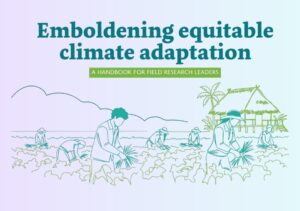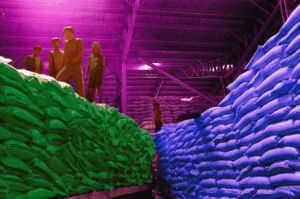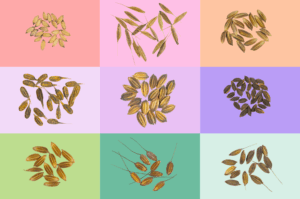
Odisha, India—Women Self-Help Groups (SHGs) in Odisha are being tapped to lead agricultural innovations, including varietal selection and the adoption of climate-smart rice.
Women farmers are often less productive than men because they have limited access to technology and information. However, they have an enormous potential to make significant contributions to improving agricultural productivity and reducing hunger and malnutrition with proper training. In fact, SHGs can be change agents by creating awareness, disseminating knowledge and seeds of new varieties, and by participating in the decision making on technology use.
Through the Evidence Hubs, the International Rice Research Institute (IRRI) is utilizing women SHGs to empower their members through the provision of knowledge, skills and capacity building, self-motivation, and learning that can lead to achieving desirable adoption levels of climate-resilient rice varieties. Evidence Hubs facilitate the process of varietal selection of preferred rice varieties in the region by engaging the different stakeholders of the seed value chain in evaluating available as well as unreleased rice varieties.
In 2017, 894 women farmers participated in IRRI’s evaluation of new and old rice varieties under an Odisha project. These participatory trials are proving to be important in the adoption of new varieties among women groups. In addition, 1,166 women farmers are planting the new varieties in demonstration plots to accelerate varietal adoption and replacement.
In Gananathpur Village in Kalahandi District, the Maa Thakurani SHG, 17 members of the SHG evaluated 19 rice varieties on a demonstration field monitored by IRRI and the State Department of Agriculture. The group selected the best varieties and exhibited their potential to become viable enterprises. The Swarna Laxmi SHG in Deogarh District has taken 0.2 hectares as a demonstration site of for 16 new rice varieties.
IRRI also provide training for building the capacity of SHGs on quality seed production and storage practices. The production of quality rice seeds will help increase their annual income as these command higher prices than grains.

The Swarna Laxmi SHG aims to make quality seeds of preferred rice varieties locally available to farmers through seed entrepreneurship. The women farmers are being trained in various seed system innovations and seed varietal preference process. This strategy has been successfully translated into practice as a significant number of women farmers are now growing foundation seeds and maintaining the quality to produce certified seeds.
Through this intervention, IRRI has created a cluster of 90 members from 10 SHGs in Akhadepada Village in the Nimapada Block of the Puri District. IRRI assisted in registering the cluster as “Seed Producer Group” at the district level by providing the foundation seeds to enable it to produce certified seeds. The institute also linked the group with a seed corporation so it can be a part of the formal seed system.
These approaches help create sustainable agriculture livelihood opportunities for women, improve their skills and capabilities, and enhance their managerial capabilities by way of wealth creation and its management.










